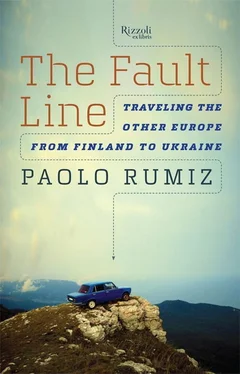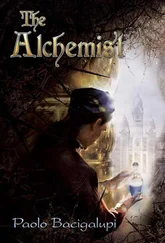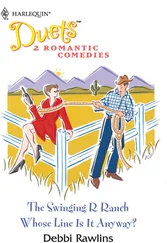I tell her again: “Italiano, Italian, European Union.” Under her old-fashioned hair bun, Tatiana’s face suddenly comes to life with an expression I recognize: panic. Soviet panic.
She hisses: “Italiano? It makes a difference, and how! Russia has a bilateral agreement with Finland, which gives Finns the right to equal treatment. They can come here to fish for salmon. But Italians, my God, Italians, they’ve never been seen around these parts. You’ll have to go somewhere else, leave, no, come in quickly before they see you.”
The woman pulls us into the reception area, which is also her kitchen, where until a moment ago she was dozing in front of the television. Black and white, obviously. She looks at me desperately.
“Naturally, you are registered with the police.”
“Naturally, no, I’ve just arrived here, and at police headquarters the police are sleeping,” I say, sitting down placidly in an armchair. I explain to her that we have just arrived from Lovozero.
More terrorized silence. Vasilyevna looks at me as though I am a catastrophe, as though our unannounced arrival meant sure arrest for her, deportation, and Gulag.
“Disaster, disaster. It’s not permitted. Only in Lovozero are there hotels for tourists… authorized hotels.”
“Ma’am, the last bus for Lovozero left three hours ago, and now we’re stuck here. But don’t worry if it’s a problem for you. We have sleeping bags, and we can sleep in the woods.” I’m bluffing, naturally, our sleeping bags are very light. We would freeze to death. I’m hoping to make a breach in the wall by showing our determination.
“Well, then, let’s do this: stay here if you like, but from this moment on, you can’t go out again. If they see you, I risk a fine of 800,000 rubles. It would take me a lifetime to pay it.” I notice that the woman is trembling. Outside it’s snowing again. Fine crystalline flakes and wind accompanied by the usual orange sunlight.
“I’ll just make a quick run to the supermarket. I’ll buy myself a sandwich and a beer, after which I swear I won’t go out again until tomorrow.”
“Go ahead, but don’t speak in your language. If they notice that you are a foreigner, they’ll file a complaint against me, and nobody will ever be able to get me out of paying the fine.”
I tell her I don’t feel comfortable keeping her in anxiety, and in the meantime the poor thing throws herself into a vortex of telephone calls. She tries to find some high-ranking official who can free her from her anguish. Three, four, five calls in both directions. The voice on the other end of the line is always female and equally nervous. Our arrival is turning into a problem of diplomacy.
A few minutes go by, and when I’m already imagining the arrival of the police, the phone rings again, and a voice enunciates the longed for, liberating monosyllable: “ Da. ”
In the Soviet world, people’s fate was suspended on one of two monosyllables: da and nyet . It was not a choice between doing and not doing but between paradise and damnation. Here in the Arctic, it seems that the old world still hasn’t disappeared.
“ Khorosho! ” As the nightmare fades away, Tatiana is transformed; she jumps to her feet and pirouettes toward the kitchen and the hallway. OK! We can do it! Hell yes, we can do it! She’s happy for me and for herself, and a sort of halo lights up around her head. Electrified, she shows us our room, the lace curtains and the view of the mountains, the common kitchen at our complete disposition, the toilet and the shower in the hallway, all for less than ten euros. Tatiana’s happiness is threatened only by the menacing face, in black and white, of Vladimir Putin, who has in the meantime appeared on television.
“My God,” I say to her, “that man never smiles. We have a head of government who laughs all the time.” But Tatiana does not take the bait, and she defends her hero. “Under Putin everything is better. Salaries have gone up, the roads are safer, and you can go home late if you like.” Now she can go back to her armchair to enjoy her programs while outside the red lighthouse of the sun lights up again. It’s eleven o’clock, and it’s free rein at the supermarket, where, wandering down aisles packed with things we’ve never seen before, we manage to put together a dinner composed of chives, sour cream, cucumbers, eggs, black bread, algae with herring, fermented beets, and Baltika beer. A lovely brunette at the cash register bids me a blushing farewell. “Come back again.”
The only sound heard in the hotel that night is the scraping and tapping of our forks against the ceramic plates.
News of the arrival of foreigners with backpacks has made the rounds, and already the next day, I receive an invitation to dinner by no less than the pope of the local Orthodox parish. An odd type, they say, who saves young people from alcohol by giving them lessons in self-defense. It seems he’s as big as a freezer and has played goalie for an ice hockey team. Ivan the park ranger adds a key detail to his saintly pedigree: “Father Leonid was a Rambo in the special forces.”
Everybody in Revda knows about his picaresque conversion. He had gone into business, and when his partners started killing one another, he realized it was time to respond to the call from above.
We set off on foot toward his house, walking on the edge of the forest. Ivan and his wife are with us, and in that immense silence, we notice that we are chatting with one another in whispers. The apartment buildings of the city of miners have their lights on, and I like to imagine them full of humanity and stories. I feel a hidden warmth in this Russian North. But on those empty streets, I feel like a man alone in the universe. I repeat the names of the cardinal points in Russian: sever , north, desolate asperity of the Gulag; yug , south, a funnel that sucks you down toward the bottom; vostok , east, like the launch of a catapult; and zapad , west, the sound of falling head over heels.
Batyushka Leonid opens the door on the second floor of a shabby condominium, and the surprises keep on coming. Inside there are three more giants like him, men from the Russian special forces but still in service. Strewn everywhere are sleeping bags, gigantic backpacks, automatic rifles, mess tins, ropes, spring clips. The three of them, together with two young boys, have established their base here for climbing the local mountains. Along with Ivan and his wife, we have brought our contribution of food for the dinner, and now we lend a hand to help set the table. On the table, apricot chicken, bulgur salad, smoked reindeer, Arbatski Dvori salami, vodka, the usual licorice-black bread, and the inevitable herring.
Outside it’s snowing like Christmas and inside it’s bitter cold. “It’s always like this. When it’s warm for three days in a row, they turn off our heat, and they don’t give a damn if the winter temperatures come back.” Leonid the bear recites the Paternoster and imparts his blessing, slicing the air with his enormous paw.
“And now, ne stesnyaite , don’t be bashful and dig in.” Nothing honors and warms the Russians more than an elaborate toast, and since everyone is looking my way, I realize it’s up to me to begin. I raise my glass of vodka and look around at my extraordinary group of table companions. In Italy, nothing like this would be possible or even imaginable. Priests and soldiers, a fascist combination. Here, no, the three soldiers seem like quiet Alpine guides.
“Dear friends, your language is not unfamiliar to me. At the gates of my city, the Slavic world begins, and on this table there are things that have names that I know: khleb , bread, voda , water, maslo , butter. But do you know what women are called where I come from?— bab è” (pronounced bah-BAY). A wave of laughter; in Russian it means the same thing. “And when you want to say that a woman is a really beautiful woman, do you know what we say?— babôn .” Even louder laughter; the word sounds incredibly funny in Russian, full as the language is of terms of endearment and diminutive forms. I explain that I have the good fortune of having a fantastic profession that allows me to meet wonderful people, “people like you”—and I bolt down my glass of burning water in a single gulp.
Читать дальше












